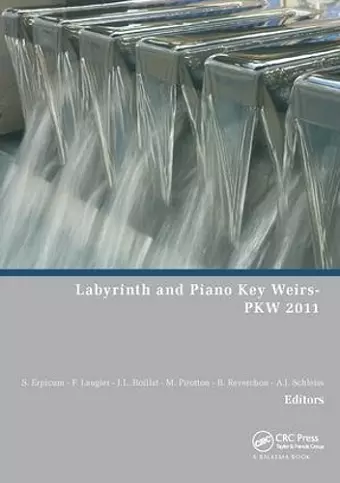Labyrinth and Piano Key Weirs
Sébastien Erpicum editor Frédéric Laugier editor Jean-Louis Boillat editor Michel Pirotton editor Bernard Reverchon editor Anton J Schleiss editor
Format:Paperback
Publisher:Taylor & Francis Ltd
Published:28th Jun '17
Currently unavailable, and unfortunately no date known when it will be back
This paperback is available in another edition too:
- Hardback£205.00(9780415682824)

Labyrinth spillways are almost as old as dam engineering. In spite of the fact that they appear as a very good technical-economical compromise, only 0.1% of large dams are equipped with such weirs. The main reason for this is that traditional labyrinth weirs usually cannot be installed on top of concrete gravity dams as they require a large foundation surface. In 2003 an improved concept of traditional labyrinth spillway emerged, with alveoli developed in overhangs from a reduced support area: the Piano Key Weir (PKW). The Piano Key Weir is a weir of particular geometry, associating to a labyrinth shape the use of overhangs to reduce the basis length. The main advantage of Piano Key Weirs is that it can be directly placed on a dam crest. As a result of extreme fl oods in the recent past, a growing demand for safety in society, and revised hydrological calculations, the need for reliable spillways has consequently become higher. In this context, the Piano Key Weir proves to be an interesting solution to increase the hydraulic capacity of spillway devices.
The book contains the state-of-the-art on this still non-conventional hydraulic structure, and is divided into six main themes:
- Physical Modeling. Hydraulic capacity
- Physical Modeling. Downstream fittings
- Numerical Modeling
- Hydraulic Design
- Planned and achieved projects
- Nomenclature, Database, Future developments.
The papers in Labyrinth and Piano Key Weirs demonstrate that dam engineering currently experiences a strong revival of labyrinth oriented weirs, and are particularly of interest to academia, researchers and professionals working in the area of hydraulic engineering, and to dam control authorities and dam owners.
ISBN: 9781138115385
Dimensions: unknown
Weight: 580g
314 pages